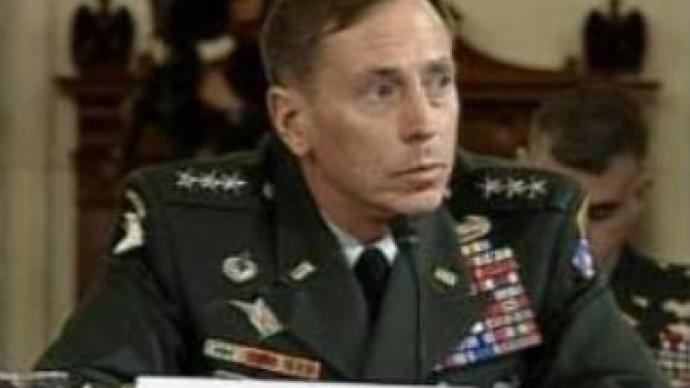U.S. Senate approves its new U.S. Commander in Iraq

The U.S. Senate has unanimously approved General David Petraeus as the new commander of US troops in Iraq. It came while President Bush building up U.S. presence in the country, sending more than 21,000 extra personnel to Iraq.
Earlier, a U.S. Senate Committee has approved General David Petraeus to be the new Commander of American forces in Iraq. Now, after approving by the full Senate, he officially replaced General George Casey.The move is seen as part of an effort to revamp top military and diplomatic officials in Iraq.David Petraeus is no stranger to Iraq. He commanded the 101st Airborne Division during the 2003 invasion, was commended for his effectiveness in administering the town of Mosul, and was given the task of training the new Iraqi Army in 2004.He proved his mettle during his first tour of duty in Iraq, when he skillfully applied US COIN tactics, based on his PhD thesis, ‘The American Military and the lessons of Vietnam’. Before being appointed, Gen. Petraeus offered a grave assessment of the situation.“The situation in Iraq is dire. The stakes are high. There are no easy choices. The way ahead will be very hard. Progress will require determination, and difficult U.S. and Iraqi actions, especially the latter, as ultimately the outcome will be determined by the Iraqis. But hard is not hopeless,” said the General.Earlier, David Petraeus was also critical of U.S. efforts in Iraq. In 2004 he noted that despite the military's strength in conventional combat, it was unprepared to fight insurgency, and poorly equipped at dealing with guerrilla warfare. In addition, he pushed for an approach more like the British, favouring local diplomacy alongside military force.Nevertheless, now he is to lead an additional 21,500 troops into battle, to face an unpredictable and scattered opposition. Meanwhile, Sunni insurgents, led by the Mujahideen Shura Council (an umbrella organisation of at least six Sunni Islamist groups), and supported by Al Qaeda, target the Iraqi government, which American forces struggle to protect. As a result, regular attacks on Iraqi army and police forces continue to stunt progress in establishing an independent state.A recent NGO (non-government organisations) poll showed that almost 50% of Iraqis approve of violence against American troops.So, Gen. Petraeus must now overcome an opposition whose only common desire is to get the coalition forces out of Iraq.
You can share this story on social media:












